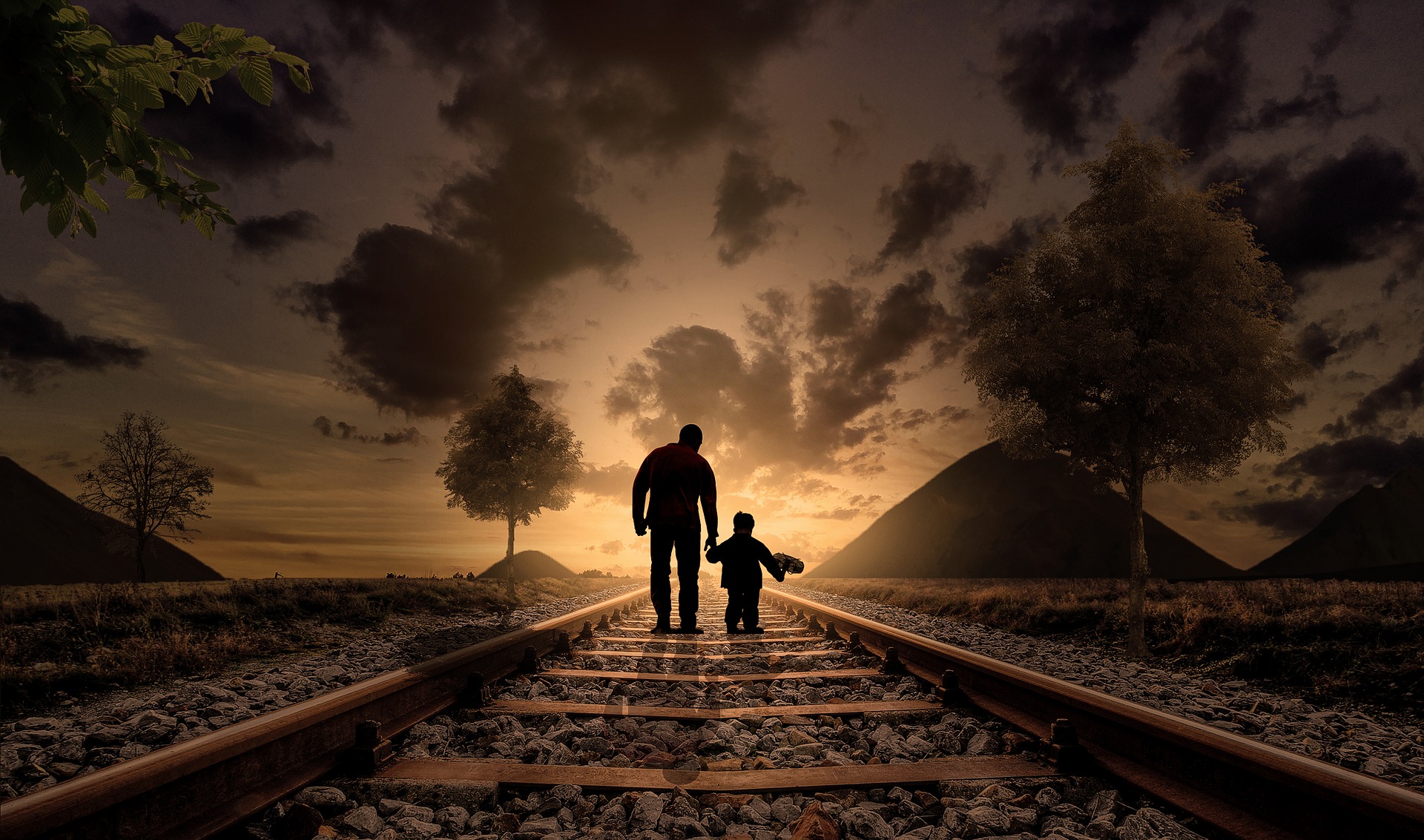Can I share something with you? I often write about the impact of early attachment experiences through the lens of a psychotherapist, but today I’d like to tell you a more personal story. Once, when I was eight years old, my father and I got into an argument. I don’t remember what we were fighting about, but I do remember that he was yelling at me, which wasn’t unusual. I lashed back at him, yelling “I hate you!” as kids often do when they’re still learning how to cope with intense emotions.
My father responded by shutting down. For several days, he acted as if I didn’t exist and ignored all of my attempts to reconnect with him. I felt alone, sad, guilty, and scared. It was excruciating to be cut off from him. And that wasn’t the only time my dad punished me with silence. My father had been taught this behavior as a child, by his own parents, who would withdraw in anger when they were upset or didn’t approve of him. He learned to be strong and in control but not how to manage his emotions in a healthy way. His way of punishing me was to either yell at me, and/or to withdraw and give me the silent treatment. It was his way of expressing his own overwhelm or emotional distress, but it didn’t teach me positive, healthy ways to handle my emotions. I struggled for many years to learn better emotional skills.
In my work with my therapy clients, I see so many people thwarted by the emotional lessons they learned as children about what emotional expressions are acceptable and what are not. Why does this happen?
The science of attachment shows us that our early childhood experiences with our parents or other caregivers shape our emotional development. When our caregivers are emotionally open and reliable, we develop the ability to stay emotionally balanced, make good use of our emotions, calm and soothe ourselves, and relate to—and connect with—others.
But when our caregivers react negatively to our emotional needs—for instance, becoming frustrated when we feel afraid and seek their reassurance, withdrawing when we express being hurt, or admonishing us when we assert ourselves—we learn to fear expressing ourselves. Instead of feeling emotionally safe to explore our world and our relationships in a way that nurtures learning and growth, we become anxious and hold certain feelings back in order to avoid feeling disconnected from our loved ones.
To make matters more difficult, these powerful lessons about emotion and connection are stored in the parts of our memory that are outside of our awareness. They guide our behavior without us even knowing it. If we don’t recognize how we’re being affected by our early programming and try to learn healthier ways of responding to our emotions, we will continue to be unduly influenced by the past. Our emotional software will directly affect the ways we respond to our feelings as adults, how we perceive and interact with the people in our lives, and dictate what we reveal or conceal of ourselves.
As a result of this programming, many of us enter into the world of adulthood without the tools we need to create good lives, and conditioned to react in ways that are no longer useful.
In general, it’s not that our caregivers didn’t love us or weren’t trying to be good parents; it’s just that they, too, may have learned unhealthy ways of coping with emotions and didn’t know that they were teaching us those same lessons.
Are you struggling with “hand-me-down” emotional patterns? Here’s one way to find out.
Take some time to consider these questions (separately for each caregiver):
- How did your parent(s) or caregiver(s) respond to you when you expressed strong feelings?
- Did they get uncomfortable, anxious, irritated, frustrated, or maybe even angry when you expressed your feelings or certain feelings in particular (such as anger, sadness, fear, joy)?
- Were some feelings okay and others not? If so, which feelings were welcomed, and which weren’t?
- Did they shame you when you had certain feelings?
- Did you ever feel as though you had to take care of their emotions?
- How did they respond when you were afraid or feeling vulnerable? Did they comfort you? Did they protect you?
- How did they respond when you were angry and asserted yourself?
- How did they respond when you were affectionate and loving?
- Did they apologize and make amends when they hurt your feelings or reacted in an unhelpful way?
- Were their responses to your emotional expressions consistent or erratic?
- Could you rely on them to be there for you emotionally when you needed them?
- Overall, did it feel safe for you to share your feelings with them?
As you look over your answers to these questions, take some time to think about the messages you got from your parent(s)’ behaviors. Do you see any similarities between your adult emotional reactions and behaviors and what went on in your family?



